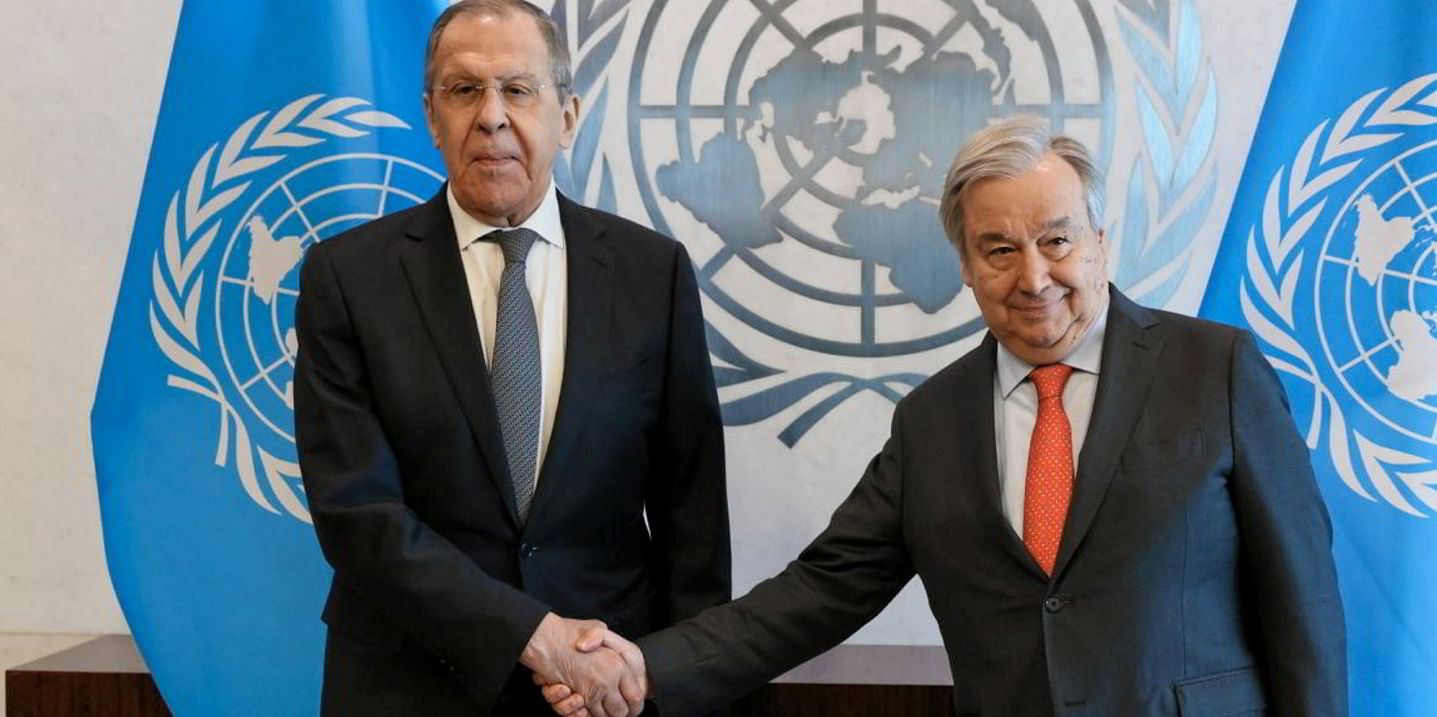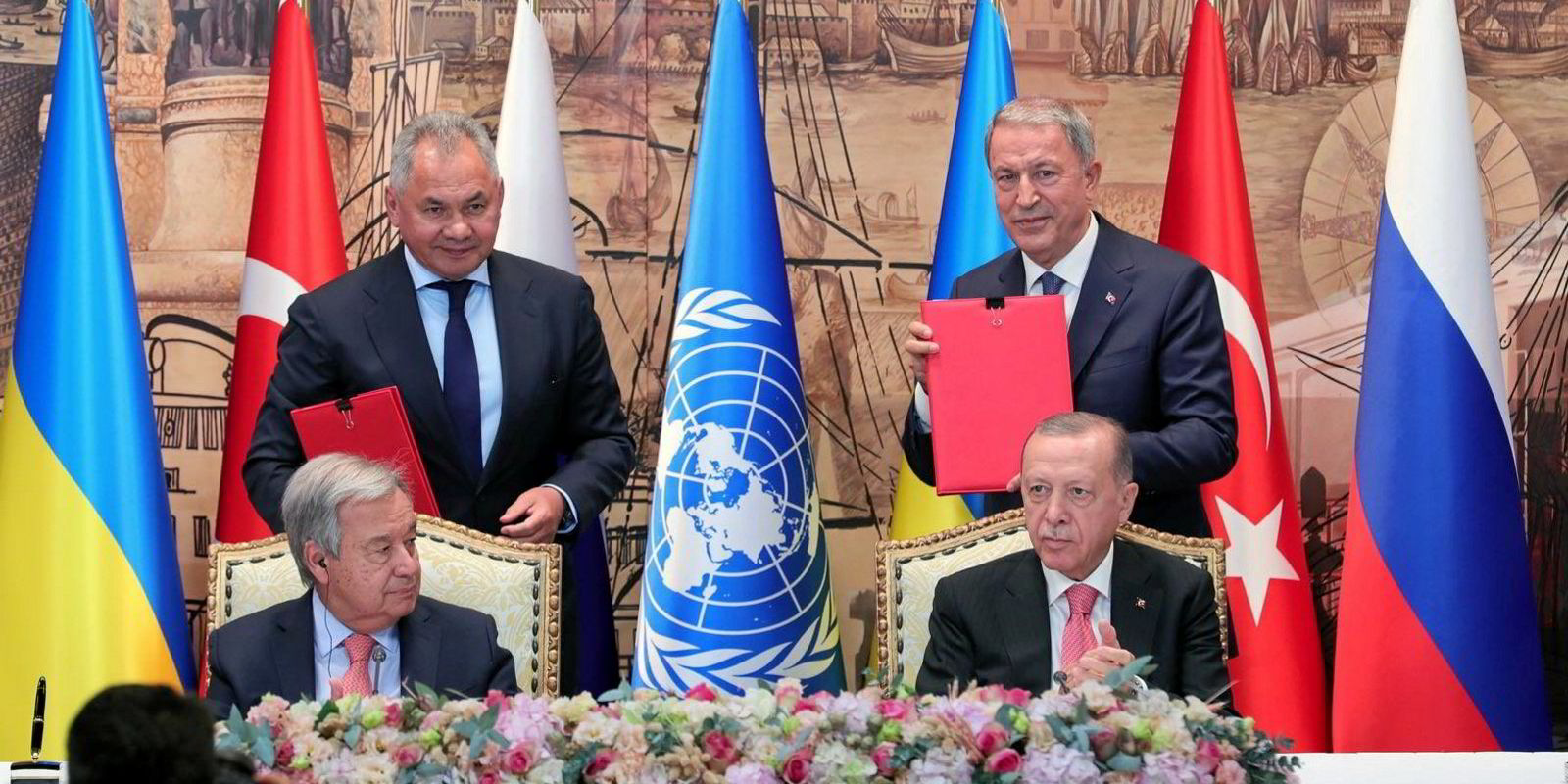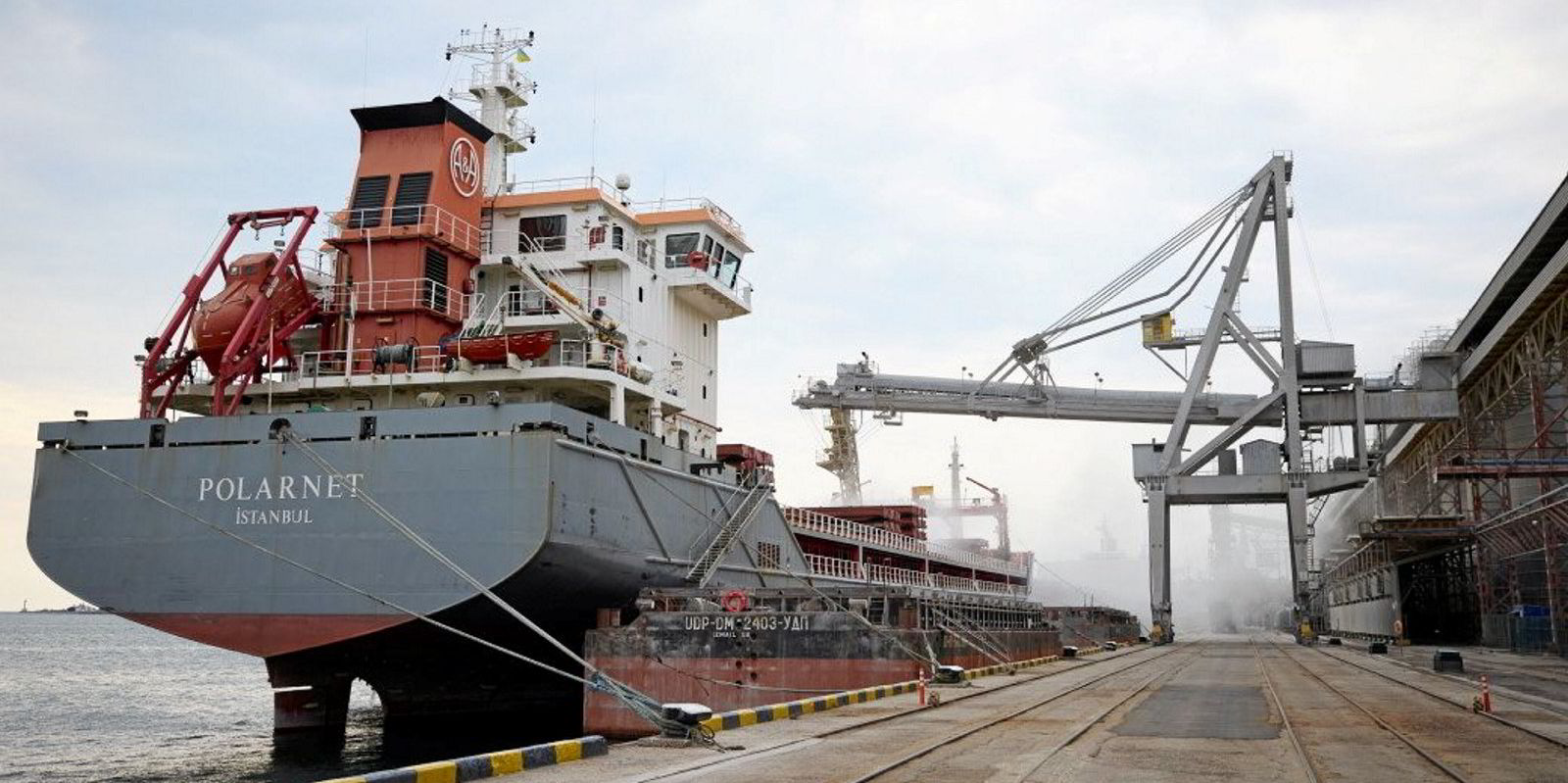In another sign that the Ukrainian grain corridor will probably end for good when it expires next month, United Nations head Antonio Guterres expressed frustration at its underperformance and some ship managers said they will no longer send their vessels there.
“The [UN] secretary-general is disappointed by the slowing pace of inspections,” Guterres’ deputy spokesman, Farhan Haq, said on 20 June.
Food exports through the UN-led Black Sea Grain Initiative (BSGI) slowed to 1.3m tonnes in May, the lowest volume since it began in August last year.
“The secretary-general calls on the parties to accelerate operations and urges them to do their utmost to ensure the continuation of this vital agreement, which is up for renewal on 17 July,” Haq said.
With the grain harvest beginning in July, reviving and extending the deal becomes “especially critical”, he added.
As TradeWinds has already reported, the initiative has been hampered by a Russian decision last month to stop approving vessels going through Yuzhny/Pivdennyi, one of the BSGI’s three ports.
Russia has justified its move by citing Ukraine’s failure to reactivate an onshore pipeline that would facilitate a separate agreement between Moscow and the UN for the export of Russian ammonia — a key component of fertiliser.
Even if Ukraine were willing to reactivate the Togliatti-Odesa pipeline, an explosion that damaged it this month has cast doubts on whether it will be serviceable before the BSGI is up for renewal.
Russia, which has long complained about the absence of ammonia exports, as well as Western sanctions hobbling its agricultural exports, has warned it would not renew the BSGI under current circumstances.
Prospects of renewal were dampened further on 17 June, when Russian President Vladimir Putin objected to a request by South African President Cyril Ramaphosa to help remove “any barriers that currently exist” in the movement of Ukrainian grain.
“We do not believe that the supply of Ukrainian grain to world markets solves the problem of poverty and hunger,” Putin told six African leaders gathered in St Petersburg.
He argued that just 3.1% of Ukraine’s seaborne grain exports go to poor countries, with most going to richer destinations such as China, the European Union and Turkey.
“Isn’t this cheating?” Putin asked.
Preparing for the day after
Official UN data indeed shows that just 655,000 tonnes out of a total 32.1m tonnes of Ukrainian grain have been exported under the UN’s humanitarian World Food Programme.
Overall, just 3% of Ukrainian foodstuffs under the initiative go to countries defined by the World Bank as “low-income”.
Countering Putin’s arguments, however, the US Treasury has pointed out that grain quantities going to countries such as Turkey are processed and re-exported to poorer nations.
Just like Russia, Ukraine seems to be spending more energy preparing for what will follow after the BSGI, rather than trying to save the initiative.
This is at least the impression left by an announcement by the Kyiv government this month that it has set aside up to UAH 20bn ($540m) in a compensation scheme for shipowners whose vessels have been damaged in the war.
“The introduction of the compensation mechanism will allow charterers and shipowners to continue to secure calls at our ports regardless of whether the grain deal works or not,” infrastructure minister Oleksandr Kubrakov said.
Nearly 1,000 voyages have been made through the corridor so far, in a trade that has supported earnings from general cargo ships to handysizes to panamaxes.
However, falling bulker earnings and week-long delays at BSGI inspection points in Istanbul have dampened ship managers’ enthusiasm to keep sending their ships there.
“We have taken a decision in our company to be away from Ukraine since February, after seeing the conflict going out of control and the renewal of grain corridor under threat all the time,” one ship manager told TradeWinds.
“Freight rates do not compensate the risk that we would take to call at a very high-risk area such as Ukraine.”





